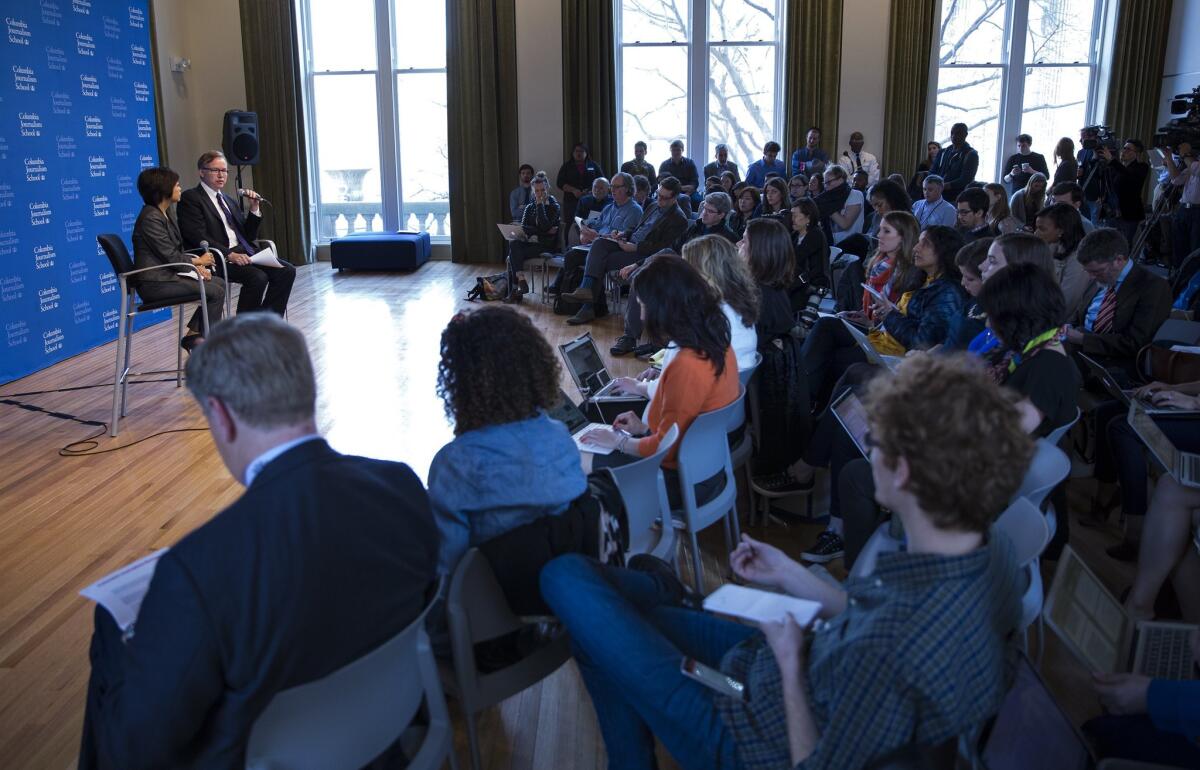Editorial: Rolling Stone didn’t ask the tough questions in rape report

Columbia Journalism School’s eviscerating report on Rolling Stone’s now-discredited article about the alleged gang rape of an unnamed female student at the University of Virginia comes in the midst of an impassioned national debate about sexual assault on campus. But let’s not get confused: The issue at hand is not whether students are being sexually assaulted or whether universities are too lax or too lenient on perpetrators. Rather, it is whether and how journalists can honestly and responsibly cover these complicated subjects. In this case, the journalists failed.
The reporter and her editors at Rolling Stone failed to verify basic information from their source, and they failed to contact the people who could have corroborated — or contradicted — the story. They did not provide members of the fraternity where the attack supposedly took place with detailed allegations to which they could respond. After the reporter tried but failed to locate the alleged perpetrator, the magazine simply used a pseudonym to write about him.
To hear Rolling Stone tell it, those oversights came about because the reporter wanted to be particularly sensitive to a woman who claimed to be the victim of a sexual assault. The reporter apparently didn’t want to traumatize her any further.
But it is unacceptable to compromise the truth in the name of sensitivity. Of course journalists who interview victims of violent crimes and their families should be kind and respectful. As we all know, sexual assault has been viewed in society as such a stigmatizing occurrence that victims have often been reluctant even to report it. Many newspapers, including The Times, do not print the names of rape victims. But none of that excuses media organizations from their responsibility to diligently and thoroughly examine the cases they cover.
How was that fundamental principle forgotten? The Columbia report notes: “Because questioning a victim’s account can be traumatic, counselors have cautioned journalists to allow survivors some control over their own stories.”
But that’s simply not possible. Once a victim goes public, journalists are obliged to ask tough questions — even at the risk of losing the subject’s cooperation or losing the story altogether.
Covering sexual assault is complicated. Even the basic statistics about how common assaults are on campus are being challenged. As people have begun to stand up against sexual violence on campus, others have grown worried that the due process rights of the accused could be compromised. In this fraught climate, for a publication like Rolling Stone to come at a story with a preconceived point of view and then botch the reporting does no one any good.
Follow the Opinion section on Twitter @latimesopinion and Facebook
More to Read
A cure for the common opinion
Get thought-provoking perspectives with our weekly newsletter.
You may occasionally receive promotional content from the Los Angeles Times.










